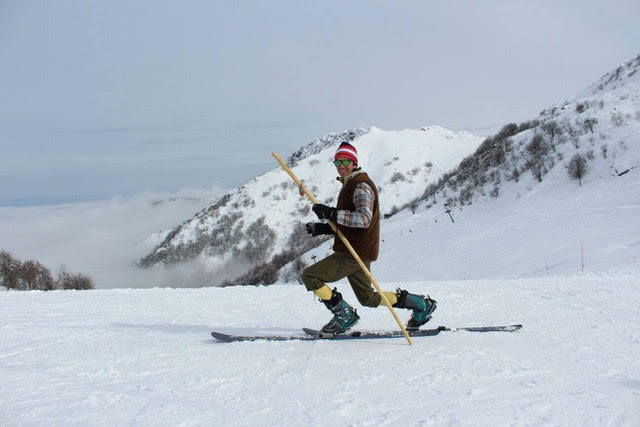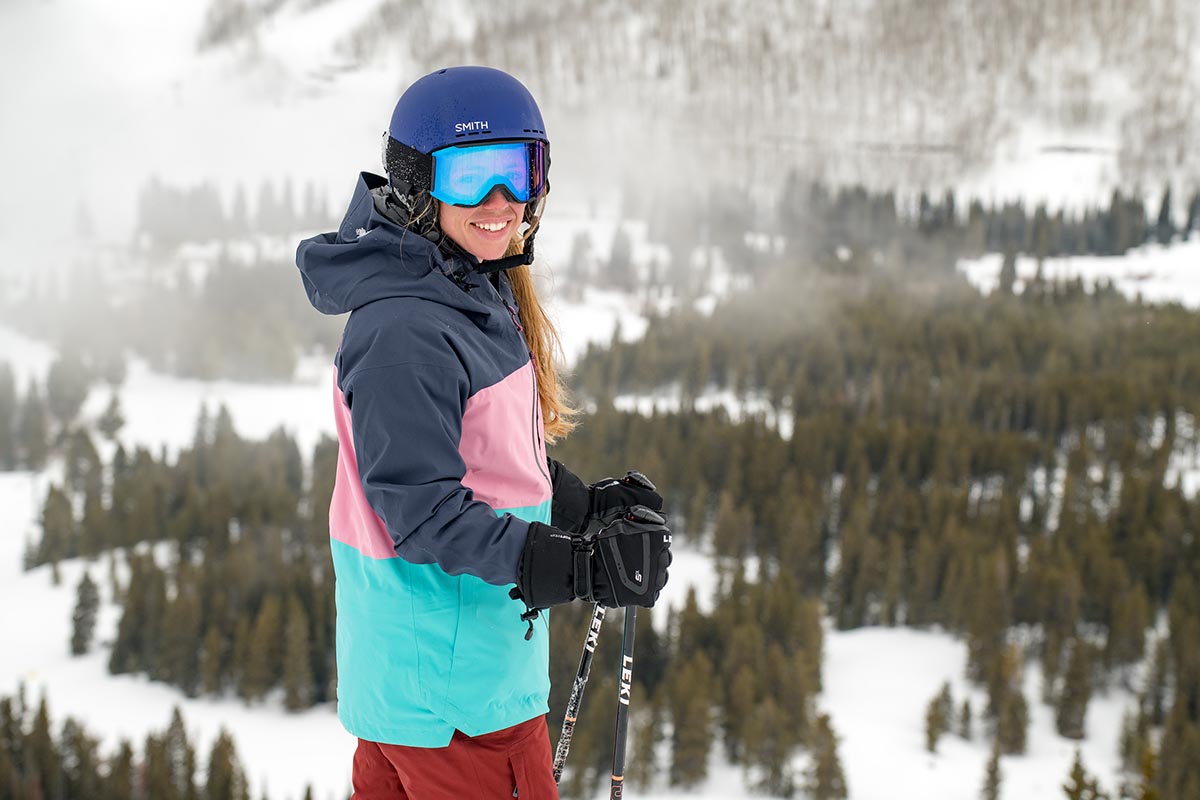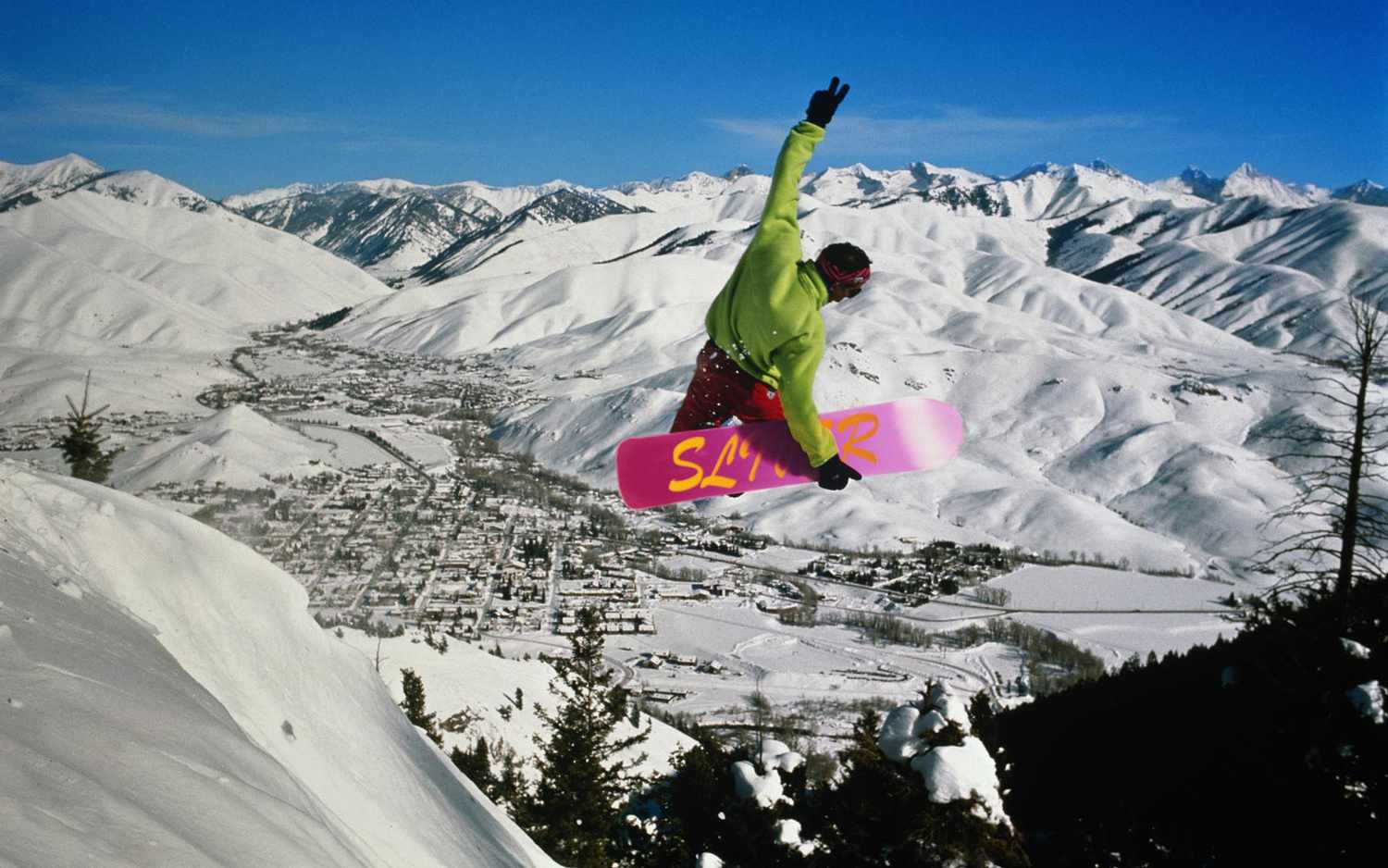
Cross-country skiing without tracks is a great way for you to enjoy the snow and not have to worry about groomed trails. It gives you the opportunity to ski on a snowy winter trail uncrowded by other skiers and offers stunning views of surrounding areas.
It's great for stretching your legs and improving your skiing skills. It's a great choice for groups of friends and families looking to spend a peaceful day in the snow.
The right gear will make it possible to enjoy the snow no matter how experienced or novice you are. Find classic cross-country skis or skate skis at your local Nordic center, as well as boots, bindings, poles and boots online.
Cross-country skiing off-trail requires different equipment, so make sure to take that into consideration when shopping for your gear.

If you're just getting started, you should begin with a pair of beginner-to-intermediate classic cross-country skis and an easy-to-use pair of cross-country ski poles. These will enable you to learn how to ski classic stance, shuffle, glide and build confidence before you purchase a more advanced package.
A pair of lightweight, cross-country skis for off-trail terrain is recommended for advanced cross country skiers. These skis come with steel edges for easier turns on downhills. They also have rocker tips and a sculpted waist that make turning more enjoyable.
Lightweight cross-country skis that are lightweight should be wide enough for most people but narrow enough to not cause friction on icy surfaces. You can also get better control of steeper hills with a ski's sidecut.
Your weight on the skis should be evenly distributed over both sides of the ski. You should feel a little bit of a "cushy", similar feeling to walking on soft ground.
You can also "bounce" the skis slightly from the snow. This allows you to bounce into your next turn and not slide off the snow, which can cause you to lose your momentum.

Once you are proficient in these techniques you can begin to master other skills. You can snowplough, parallel skid and kick turn to get more speed out of a track, or you can use step turns and tucking to avoid obstacles on your way downhill.
Before you head out, always check the weather forecast. This will tell you if the trail is safe and what unexpected problems might occur that could cause injury to other skiers.
You can also see if there are any blowouts, ice patches or other conditions that could make skiing unsafe. This is especially true when it is cold. These conditions can increase your risk of hypothermia and could require you to leave the trail.
FAQ
What documents should I have with me while traveling?
Keep copies of important documents handy for when you're on the move. It is a good idea to have a spare copy of your passport, driver’s permit, and any other official identification cards. You might also need to keep information about your credit cards in case you use an ATM machine.
A photocopy is always a good idea. This can be used to verify your identity, if necessary.
Don't forget to attach copies of your itinerary or reservations. These will help keep you organized and allow you to plan your trip.
Keep a copy of the flight ticket and details for your hotel reservations. If you have any problems, you can always contact someone back at home.
It is a good idea never to leave anything valuable unattended. You can keep your valuables safe by keeping them in your wallet or inside your bag.
To avoid costly items being lost, make sure you check your luggage before you leave.
Keep in mind: It is safer to keep it simple than to plan everything.
Let's just be relaxed and enjoy the journey!
Are you worried about losing something while you're on the road?
Yes, I often forget stuff. This is especially true when I am on a short vacation. Fortunately, I always bring everything I need, so I don't run out.
I always keep my passport, for example. Also, I always make sure that I have enough money before I purchase tickets.
I also keep my phone charged. Also, I have a small bag that I store my other items in.
What is the first thing you should do upon arriving at your travel destination
A plan should be prepared for each step of your journey. It will let you know what to expect, and where to go next.
Plan ahead to make sure you don't overlook anything.
You should also research what museums, parks, or landmarks you want to visit if you are planning to visit a city more than once.
It might be worth looking into getting a map for the area or reading about the history of this region.
Where is the cheapest place to buy airline tickets?
You might want to look at airlines such as Jetstar, Virgin Australia and Tigerair for the best airfares.
Look online for cheap flight tickets.
How much luggage do I need?
The length of your trip will determine how much luggage you need. For a flight, hand baggage is not necessary, typically less than 20 kg. You will need more space if you travel by train or bus.
You will receive a form with all the details about your flight when you arrive at airport. This form will contain information about your flight, such as the weight and assistance required when you check them in.
This must be done before you leave your home. You could end up spending hours waiting for your luggage to be checked while others check theirs.
It's best to travel light, as you never know when something might happen. For example, if your bag gets lost, you won't have anything to wear.
How can I make travel more enjoyable?
It should be more than just about getting from A to B. It should include all the experiences along your journey.
The app "Traveler" was created to help you plan your trip and create itineraries based upon your interests.
We are currently working on adding more features such as booking hotels, flights, renting cars, etc.
This project had the goal of creating a simple travel planning tool that would allow people to see more while they are away.
Should I get travel insurance?
Travel insurance is vital if you're planning to travel. In fact, you should make sure that you get cover for all types of adventure sports.
For example, if you are skiing, you should ensure that you have medical coverage. You should also consider getting coverage for theft, damage, and loss.
Cover for cancellation should be considered. This means that you can cancel your holiday without paying any penalties.
Also, make sure you ask for insurance for emergency evacuation. You can also be taken off the mountain in the event of an avalanche, or another natural disaster.
Statistics
- Between the ages of 11 and 13, kids, or tweens, will likely want some autonomy but also need boundaries. (travelandleisure.com)
- According to Maori legends, this park holds 14 fjords that were all carved by a giant stonemason with an adze. (busytourist.com)
- Alcoholic beverages with more than 24% but not more than 70% alcohol are limited in checked bags to 5 liters (1.3 gallons) per passenger and must be in unopened retail packaging. (tsa.gov)
- Pack sweaters, jackets, and underwear in reusable compression bags creating up to 75% more space in your luggage. (wikihow.com)
- You can use compression sacs or cubes to reduce the volume of your clothes by up to 80%—this is especially convenient for bulky items such as sweaters and jackets. (eaglecreek.com)
External Links
How To
Which are the best travel tips and tricks for beginners?
While traveling is an exciting experience there are many traps that you must avoid in order to enjoy a safe and enjoyable trip.
Here are some basic tips to help you plan your next vacation.
-
Get your bookings in early. The lower the price, the earlier you book. Avoid last-minute offers by airlines and hotels to save money.
-
Stay-at-budget accommodations. Cheap hotels are more affordable. These hotels are often located close to shopping and public transportation.
-
Don't overpack. Keep it light. Allow for souvenirs, gifts, and luggage. Wear clothes that fit well, and don't wrinkle easily.
-
Be sensible. Traveling alone? Don't go out at night. Avoid unsavory neighborhoods and areas where crime is rampant.
-
Prevent theft. Keep valuables hidden from view. When you swim, don't leave valuables unattended.
-
Pay attention to cash. Thieves often target tourists in foreign cities. Keep your money away from prying eyes and only use ATMs at banks or protected facilities.
-
Be familiar with your surroundings. Prior to booking a room in a hotel, make sure you understand how public transport works. Discover information about tourist attractions and restaurants.
-
Learn about safety. Before you travel, learn about the culture, laws, and customs of your destination.
-
Have fun! No matter what happens, enjoy yourself. It's worthwhile.